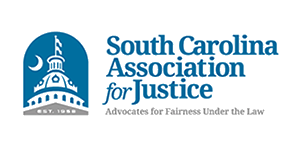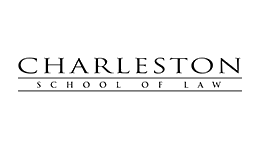
When you trust your loved one’s health and safety to a nursing home, you believe the staff will provide the proper care and companionship that your family member needs. While the staff at many nursing homes do work hard to meet residents’ physical and emotional needs, many nursing homes are understaffed, unsupervised, and poorly managed. The result? Numerous patients suffer some form of abuse or neglect at their nursing home every year, often leading to severe injuries and even death in some cases.
At Evans Moore, LLC, we understand the suffering endured by elderly patients and their families as a result of the abuse that was committed. When you hire us, we will protect your loved one’s rights and fight for the justice they deserve.
Our Georgetown nursing home abuse lawyers can take on every legal aspect of your case, from investigating the abuse and gathering evidence to proving liability and pursuing compensation. You and your family shouldn’t have to suffer more than you already have. The legal team from Evans Moore, LLC will dedicate themselves to holding the responsible parties accountable for their actions or inaction so your loved one can move forward with their life.
Call us at (843) 995-5000 for your free initial consultation to find out more about the legal services we provide and how we can help you with your case.
Types of Nursing Home Abuse
Nursing home abuse can take various forms and occurs too often at assisted living or long-term care facilities, such as nursing homes. Elderly residents are at risk of different types of abuse from their caregiver, nurse, an administrative staff member, or another patient. Below are the different types of nursing home abuse and warning signs to watch for to determine if your loved one has become a victim.
Physical Abuse
Intentionally causing bodily injury by using physical force against an elderly resident. Physical force could include things like slapping, kicking, grabbing, or punching. Warning signs that could indicate physical abuse may include:
- Broken or lost teeth
- Sprains and dislocations
- Fear of a specific person
- Unexplained broken bones and other injuries
- Changes in mood or behavior
Neglect
The failure of a staff member to fulfill their responsibilities towards their patient. Refusing to help a resident bathe or withholding food are forms of neglect that could put them at risk of harm. Common warning signs of this type of abuse include:
- Bedsores
- Dehydration
- Malnutrition
- Unsanitary living conditions
- Signs of depression
Emotional Abuse
Using verbal or nonverbal acts to inflict emotional anguish, distress, or pain. Harassment, humiliation, and insults are just a few examples of this abusive behavior. Signs that your loved one is experiencing emotional abuse include:
- Difficulty sleeping
- Low self-esteem
- Anxiety or depression
- Isolation from friends and family
- Avoiding eye contact
Financial Exploitation
Financial abuse is a form of nursing home abuse that many people have never heard of before. Although not as common as the other types, it could happen. It involves a caregiver or another trusted nursing home employee improperly or illegally using a resident’s assets, money, or property. Warning signs might include:
- Missing cash or personal items
- Unusual credit card charges
- Sudden changes to a will, power of attorney, or another legal document
- Large bank account withdrawals or transfers
- A staff member showing interest in a patient’s finances
Sexual Abuse
Forced and unwanted sexual contact with an elderly resident, such as groping, rape, and sodomy. Women are typically more at risk of sexual abuse. Patients with physical or mental impairments are also more likely to become victims because they’re unable to defend themselves.
The most common signs of sexual abuse include:
- Emotional withdrawal
- Bruising in the pelvic area
- Vaginal or anal bleeding
- Diagnosis of a new sexually transmitted disease (STD)
- Blood or stained underwear
- Trouble sitting down or walking
Abandonment
The desertion of a dependent adult by the person who is supposed to care for them. For example, a nurse leaves their patient who cannot walk on their own in a wheelchair for hours. Some signs of abandonment might include:
- Untreated injuries
- Poor hygiene
- Dehydration
- Dirty or unclean appearance
- Seeming lost or confused
Self-Neglect
Self-neglect is behavior that puts one’s own safety and health at risk. A patient could become malnourished if they refuse to eat. Or, they might engage in certain activities that could cause injuries. This is behavior that the nursing home staff should watch for and address. Warning signs that your loved one might be exhibiting acts of self-neglect include:
- Wearing inappropriate clothing
- Poor personal hygiene
- Weight loss
- Confusion
- Unable to complete basic tasks, such as going to the bathroom
You should contact Evans Moore, LLC immediately if you notice any of these warnings signs and believe your loved one has become the victim of abuse. The sooner you seek legal action, the sooner you can ensure their safety and receive the financial compensation necessary to help them recover from their injuries.

What to Do When You Suspect Nursing Home Abuse
If you think your family member is suffering from some form of abuse in a nursing facility, you should follow the steps below. They might not be able to speak for themselves, so you need to be their voice and advocate for their rights. Hire one of the Georgetown nursing home abuse lawyers of Evans Moore, LLC and begin the process of holding the abuser liable.
- Have your loved one transferred to a hospital for treatment of their injuries.
- Request copies of all medical records and documentation associated with the abuse, injuries, and treatment.
- Speak with the facility supervisor and tell them what you have seen and what you learned from your loved one. If necessary, you could file a report with the local police department.
- Maintain all evidence of the abuse, including photos of your family member’s deplorable living conditions, pictures of any physical injuries, damage to personal property, and statements from other residents who experienced or saw the abuse.
- Speak with an experienced North Carolina nursing home attorney. We’ll request a copy of the nursing facility’s liability insurance policy and file a claim. It might be possible to negotiate for a settlement with their insurance company to cover your loved one’s financial losses. However, it is your right to file a lawsuit if that path makes sense for your case.
At Evans Moore, LLC, we know the steps we need to take to hold the nursing home or specific employee liable for the harm they caused. Your loved one shouldn’t have to suffer any longer. They’ve been through enough and deserve to seek compensation for the injustices they were forced to face.
Compensation Available for Nursing Home Abuse Victims
 The goal of any legal case is to hold the negligent party responsible for their actions and secure a monetary award that covers the victim’s past and future losses. The injuries suffered from abuse can result in financial, physical, and emotional losses that require compensation to recover. You may be able to seek compensation for:
The goal of any legal case is to hold the negligent party responsible for their actions and secure a monetary award that covers the victim’s past and future losses. The injuries suffered from abuse can result in financial, physical, and emotional losses that require compensation to recover. You may be able to seek compensation for:
- Medical bills
- Loss of consortium
- Personal property damage
- Inconvenience
- Pain and suffering
- Out of pocket expenses
- Mental anguish
- Physical impairment or disfigurement
All residents in nursing homes have various rights under South Carolina laws. If the facility or any staff members violate these rights, they could become financially responsible for the resident’s injuries and resulting expenses. You could file an insurance claim or lawsuit to compensate your loved one for the suffering they experienced and all costs associated with the abuse.
Filing a Lawsuit for Nursing Home Abuse in South Carolina
Lawsuits come with strict deadlines, complicated procedures, and various state laws and statutes. You must follow the legal process exactly, or you could lose your right to recover the compensation necessary for your loved one to move forward with their life. There is a specific timeframe for filing a lawsuit known as a statute of limitations.
The statute of limitations in South Carolina is three years. This three-year deadline means that you have three years from the date your family member sustained injuries to sue the at-fault party. After three years pass, the court will likely not accept your case if you try to file due to the past statute.
Two main exceptions could delay the statute of limitations, allowing additional time to file your lawsuit:
- The abuser left the state before you could file suit. Their absence would not count towards the three-year timeframe.
- Your loved one was of unsound mind at the time of the abuse. The statute wouldn’t begin again until they become mentally competent.
Evans Moore, LLC has experience handling the complex nature of lawsuits like this. It can be shocking when you discover that someone you thought you could trust took advantage of your loved one. Our legal team will take over the entire case so you can focus on getting your loved one to safety and help them heal.
Speak to a Dedicated Georgetown Nursing Home Abuse Lawyer
Evans Moore, LLC will dedicate our time, attention, and resources towards your case to get your loved one the justice they rightfully deserve. In the aftermath of abuse, the victim could experience psychological trauma, physical pain, and other problems associated with their injuries. You and your family will not be alone as we provide the services, support, and guidance you need during this difficult time in your lives. Use Google Maps to locate our office and read about past client experiences.
If your loved one suffered from nursing home abuse, call us at (843) 995-5000 for a free consultation to discuss your case and determine the available legal options.









